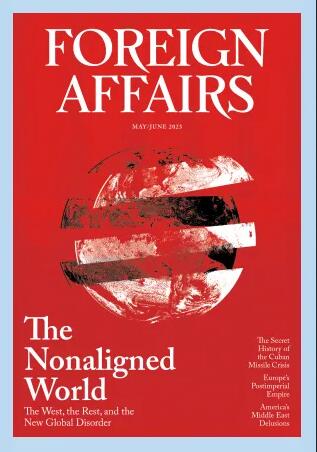EU and Russian Foreign Policy in the Arctic as a Factor in Shaping Ukraine's Strategy in the Earth's Polar Regions
IF 6.3
2区 社会学
Q1 INTERNATIONAL RELATIONS
引用次数: 0
Abstract
The geopolitical importance of the Arctic has been growing in recent decades as leading global and regional nations seek to implement new strategic and economic opportunities. This study analyses the content of strategic policy documents that define the principles of foreign policy in the Arctic region of the two main actors in world politics on the Eurasian continent – the European Union and the Russian Federation – who have different strategic visions of the region, as well as the activities of Ukraine in the polar regions. The paper demonstrates that the principles of EU foreign policy in the region are aimed at protecting the rights of citizens of the Arctic EU Member States, balanced development of the region with a clear imperative for environmental protection and research to this end. In turn, Russia's policy in the Arctic has a clear military-strategic priority, especially since 2014, subsequent to the annexation of the Crimean Peninsula and the occupation of eastern Ukraine. Considering this, further tasks of Ukraine's foreign policy in the Arctic region should be to make full use of Ukraine's integration potential into the European Research Area and to join the European Green Course as an ambitious EU integration project. Furthermore, foreign policy should also include the development, maintenance, and strengthening of all available international legal mechanisms and instruments to counter the Russian Federation's aggression against Ukraine, which is fully in line with Ukraine's recently approved Foreign Policy Strategy欧盟和俄罗斯在北极的外交政策是影响乌克兰在地球极地地区战略的一个因素
近几十年来,随着全球和该地区的主要国家寻求实施新的战略和经济机会,北极的地缘政治重要性不断增强。本研究分析了战略政策文件的内容,这些文件定义了欧亚大陆世界政治中的两个主要角色-欧盟和俄罗斯联邦-对该地区具有不同战略愿景的北极地区外交政策原则,以及乌克兰在极地地区的活动。本文表明,欧盟在该地区的外交政策原则旨在保护北极欧盟成员国公民的权利,平衡该地区的发展,并为此目的进行环境保护和研究。反过来,俄罗斯在北极的政策具有明确的军事战略重点,特别是自2014年以来,在吞并克里米亚半岛和占领乌克兰东部之后。考虑到这一点,乌克兰在北极地区外交政策的进一步任务应该是充分利用乌克兰融入欧洲研究区的潜力,并作为一个雄心勃勃的欧盟一体化项目加入欧洲绿色课程。此外,外交政策还应包括发展、维持和加强所有现有的国际法律机制和文书,以对付俄罗斯联邦对乌克兰的侵略,这完全符合乌克兰最近批准的外交政策战略
本文章由计算机程序翻译,如有差异,请以英文原文为准。
求助全文
约1分钟内获得全文
求助全文
来源期刊

Foreign Affairs
INTERNATIONAL RELATIONS-
CiteScore
4.80
自引率
0.00%
发文量
2
期刊介绍:
Founded in 1922, Foreign Affairs is a prominent American magazine that focuses on international relations and U.S. foreign policy. It is published by the Council on Foreign Relations, an esteemed nonpartisan think tank and membership organization dedicated to analyzing U.S. foreign policy and global affairs. While the print magazine is released every two months, the website offers daily articles and publishes anthologies every other month.
 求助内容:
求助内容: 应助结果提醒方式:
应助结果提醒方式:


